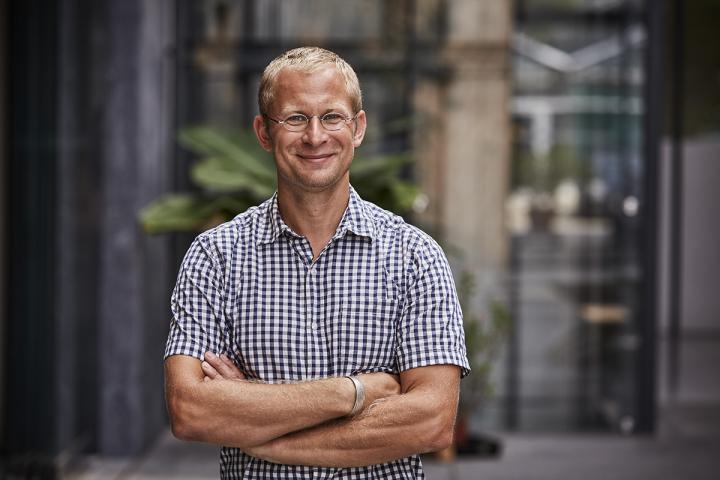
Credit: Marco Warmuth/TGZ Halle
Professor Georg Woltersdorf, head of the Optics Group at the Institute of Physics at Martin Luther University Halle-Wittenberg (MLU) has been appointed as a Max Planck Fellow for five years by the Max Planck Society in Munich. As a Max Planck Fellow, he will head a research group at the Max Planck Institute (MPI) for Microstructure Physics in Halle starting in January. They will use optical methods to investigate dynamic phenomena in novel (spin)electronic materials. The research will receive 500,000 euros in funding and will serve as a basis for applications in future storage devices.
“I see my appointment as a Max Planck Fellow to be a great acknowledgement of our research and our good collaboration,” says Professor Georg Woltersdorf, head of the Optics Group at the Institute of Physics at MLU. “It will enable me and my colleagues at the Max Planck Institute to further develop our methods over the next five years and to apply these methods to the globally unique samples and material systems produced by Stuart Parkin’s research group.” At the Max Planck Institute he will lead a research group together with Parkin, whose research has already revolutionised storage electronics. The physicist came to Halle in 2014 as part of a Humboldt Professorship at MLU and the MPI for Microstructure Physics. A unique infrastructure for the production of new materials for applications in spintronics has been created in Professor Stuart Parkin’s department at the MPI. Atom by atom, materials with novel properties can be constructed on the basis of theoretical calculations.
In so-called spintronics, the spin, a kind of intrinsic angular momentum, is used, in addition to the charge, to carry information. This property enables highly energy-efficient and extremely fast logic devices and information storage. The dynamic properties of the novel materials required for this will be investigated in the Max Planck Fellow project. “The special thing about magnetic dynamics is its immense speed,” says Woltersdorf. In order to understand this, ultra-short light pulses lasting less than 100 femtoseconds (i.e. 0.0000000000001 seconds) are used to generate spin current pulses. The dynamics triggered by these pulses are investigated using optical methods. “We are very excited to take advantage of the expertise and extensive knowledge of ultrafast optical techniques and the capabilities that Georg and his team have developed at MLU and to apply them to unravel the mysteries of our atomically engineered nano-devices,” comments Parkin.
Georg Woltersdorf was appointed to the MLU in 2013 and works in the fields of optics and magnetism. He is the deputy spokesman for Collaborative Research Centre 227 “Ultrafast Spin Dynamics”, which was established in 2019 in conjunction with Freie Universität Berlin. Using various optical methods, ranging from pump-probe spectroscopy and microscopy to optical near-field microscopy, his research group at MLU studies magnetic nanostructures and their dynamics.
The “Max Planck Fellows” programme was established by the Max Planck Society in 2005 to strengthen cooperation between universities and Max Planck institutes by appointing outstanding scientists to head small research groups at the Max Planck institutes. About seven new Max Planck Fellows are appointed each year. Following Professor Ingrid Mertig in 2008 and Professor Wolf Widdra in 2012, Professor Woltersdorf is the third researcher from the Institute of Physics at MLU to be appointed as a Fellow at the Max Planck Institute for Microstructure Physics in Halle.
###
Media Contact
Ronja Münch
[email protected]
49-345-552-1438
Original Source
https:/




